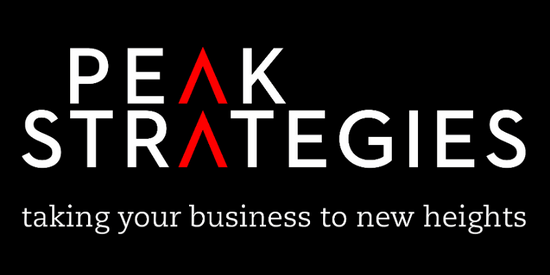End of Year Compliance
Another financial year over and one thing is certain, you will need to get your tax information together and go see your accountant. Here at Peak Strategies, we enjoy preparing our clients’ compliance work however we do come across some common errors that the business owner or their bookkeepers have made.
So to avoid hassle’s and time delays during the year end process, here are a few tips on what you can do to get your financial statements and tax return information in order. So your accountant can turn around your compliance work faster and possibly even reduce your accounting bill!
Financial Statements
When we prepare your accounts, we usually start our review from the Balance Sheet and then work our way to the Profit and Loss Statement. We recommend that you do the same as if your Balance Sheet is correct first, it is unlikely any changes will be made by the time we review your Profit and Loss Statement. Furthermore here are some important accounts you should review:
Balance Sheet
Opening General Ledger Balances
Your opening balances should match the financial statements that your accountant prepared in the prior year. Your accountant would have prepared a reconciliation journal for you upon completion of the financial statements. Furthermore please ensure you enter this into your software.
Business Activity Statements (BAS)
Make sure all BAS’s have been lodged with the ATO for the financial year.
Signed Trust Resolutions
If operating though a Trust structure, a Resolution must be signed and dated before 30 June. Send this Resolution to your Accountant if they do not have a copy.
Bank/Credit Card/Bank Loans
Ensure you reconcile your bank in your accounting software to your bank statement at 30 June. I know some banks don’t issue your statements ending on this date so prepare 2 bank reconciliations if needed (one at 30 June and one at the closing date of the statement).
Also check that only current outstanding deposits and cheques remain in your bank reconciliation. If you have old transactions, ensure these are cleared/reversed out.
Give your accountant the bank statements which show transactions up to 30 June. I have received statements up to 29 June however we are a day short so we need to sight and confirm no transactions occurred on that 1 day. Send through the next bank statement if needed.
Petty Cash
Similar to Item 1, ensure you have a reconciliation done of your petty cash for money being put in and money coming out for expenses (most owners either use an Excel spreadsheet or have a petty cash book). Give your accountant the reconciliation which shows the balance of your petty cash at 30 June.
Trade Debtors/Receivables
Check that your Receivables Report matches the balance at 30 June on the Balance Sheet.
Ensure you have taken up any accrued PBS debtors at 30 June.
Also review and check that there are no debtors outstanding for more than 90+ days. If they do remain current and outstanding, please advise your accountant as they will query this and check for recoverability.
Business Assets (i.e. Plant & Equipment, Fixtures & Fittings, Motor Vehicles, etc.)
If you have purchased a new asset that is used in the business, ensure you enter in the description of what you have purchased. No doubt if there is no description, your accountant will be in contact to find out what it is.
Review your assets and advise your accountant if an asset should be written off as it no longer exists in the business.
Stock on Hand Report
A stocktake should have taken place for 30 June and would have adjusted your Point of Sales System to match your stocktake.
Ensure your send through a Stock on Hand Report to your accountant.
Inter-Entity Loan
If there are any inter-entity transactions in debtors, creditors or loan accounts, please ensure the balances reconcile between these entities. What you take up in one entity’s account should be taken up in the other entity’s accounts. It is such a simple concept however you won’t believe the amount of times we have received un-reconciled inter-entity loans.
Trade Creditors/Payables
Check that your Payables Report matches the balance at 30 June on the Balance Sheet.
Check your 90+ days creditors and ensure they remain current and outstanding to the supplier. If they no longer exist, please advise your accountant.
Payroll Tax Payable
If you are required to pay Payroll Tax, your return and any payment is due on the 21 July regardless if you lodge monthly/quarterly/annually. Ensure you accrue the liability at 30 June in the prior year as it relates to this period (i.e. 2017 Payroll Tax is due 21 July 2017, you will need to accrue the liability at 30 June 2017 as it relates to the 2017 financial year period).
Superannuation Payable
Check that what remains outstanding to the employees’ Superfunds is current and correct and you do not have any overdue super that requires to be paid.
If you do have super that is overdue to the employees’ superfunds, investigate into this account further and find out which employees require payment to their Super Fund and do this ASAP.
Pay As You Go Withholding (PAYGW)
This account should have been reconciled when you do the year end payroll processing.
Ensure you have taken up in the accounts all PAYGW reported on lodged BAS’s before 30 June.
Also make sure you have reconciled the PAYGW against what you have lodged in the BAS. What you have reported to the ATO should match what you have in the accounts.
The balance that remains outstanding should be what has not been paid to the ATO at 30 June 2017.
GST Accounts
This is the account that gives accountants the most grief and is a hard account to reconcile.
Check your GST report and ensure you have allocated GST correctly to your transactions for the year.
Ensure that you have taken up in the accounts all GST Collected and GST Paid as reported on lodged BAS’s before 30 June.
Also make sure you have reconciled the GST Report against what you have lodged in the BAS. What you have reported to the ATO should match what you have in the accounts.
The balance that remains outstanding should be outstanding BAS’s lodged after 30 June.
Leave Provisions (Annual/Long Service/Sick)
Ensure the liability taken up for leave provisions match the leave entitlements reports for current employees
Pay as You Go Instalments (PAYGI)
If your business pays Tax Instalments, make sure you allocate this to a separate liability account (i.e. Taxation) and separate this from PAYGW, GST or drawings.
Hire Purchase
Ensure payments and the number of payments that are to be made are correct in these liability accounts.
Some owners or bookkeepers may separate the interest portion according to the hire purchase schedule and this is ok. If this is not done, your accountant will allocate the interest portion accordingly when they prepare your accounts.
If you have a new hire purchase/chattel mortgage, please send a copy to your accountant.
Profit and Loss
General Review
Compare this year’s Profit and Loss Statement to last year’s and determine whether there are material changes to the income and expense accounts. If so, look into these accounts and determine whether this is correct. Leave some notes for your accountant so they are aware of this.
Retail and Dispensary Sales
Ensure retail and dispensary sales are recorded in separate accounts. This will allow us to compare your pharmacy performance from previous periods.
Also send through your annual Departmental Sales Report.
Distributions
If you receive distributions from other Trust/Partnership entities, please send a copy of the financial statements and income tax return to your accountant.
Computer Expenses
Ensure transactions in these accounts are correct for computer maintenance.
Check that any equipment purchases are coded to the asset accounts and not the Computer Expense account. (i.e. purchase of new computer).
Entertainment Expenses
If you have provided entertainment expenses (i.e. Staff party), these items are not deductible for tax purposes and GST should not be claimed.
Usually we see these in Staff Amenities expense accounts as well. This is ok to leave there but ensure you have put in a clear description and have not claimed GST on these expenses.
Insurance
Ensure all business insurance has a description entered and GST has been allocated correctly. Insurance usually comes with a stamp duty portion which does not have GST on it.
Only business insurance is deductible. If you have included personal insurance (i.e. Life insurance), please enter this in the description and ensure no GST has been claimed.
Conference/Travel/Accommodation Expenses
Accountants will need to determine whether these expenses can be deducted so ensure you have a description against these expense accounts.
Accountants will also ask you for an itinerary which includes days travelled, what you did on the trip and details of any personal usage in which the trip was not business related. Give this information to your accountant as I guarantee they will ask you every time.
Repairs and Maintenance
Check that the expenses are actual repairs maintenance and not replacement of an asset or an item that needs to be added to the shop fitout. For expenses that are of large amounts, ensure a description has been entered.
Wages and Superannuation
Check that your Wages Report matches what is in the Profit and Loss Statement. If there is a difference, investigate into this further.
Rent and Variable Outgoings
Make sure rent and variable outgoings are in separate accounts. This distorts the actual rent figure when it comes to doing valuations.
Personal Expenses
Stock: If you have taken stock for personal use you will need to separate this in Cost of Goods Sold and ensure you have not claimed GST on these items.
In you have personal expenses in the expense accounts, please ensure you clearly put a description for personal use and ensure GST has not been claimed on these items.
IMPORTANT: If you have not reconciled and reviewed your accounts, please do not send your accounting software to your Accountant.
Income Tax Returns
First of all when it comes to preparing your tax return, this is the most common information that we would request:
Income
Personal bank details if not provided before (account Name, BSB and account number)
Payment summaries from wages/salaries/super income streams.
Interest income earned on bank accounts
Dividend statements.
Capital gains on assets (purchase details and sale details)
Rental income (income and expenses relating to the rental property).
Partnership/trust distributions.
Expenses
Work related car expenses (log book, kilometres travelled, car expenses and details of the vehicle).
Work related travel expenses (i.e. Travel diary and expenses related to accommodation, food, parking, etc.)
Work related uniform expenses.
Work related self-education expenses.
Other work related expenses (i.e. Subscriptions, membership, stationery, assets purchased for work).
Income protection insurance.
Deductible super contributions.
Business income and expenses (ABN in your personal name)
Other
Private Health Insurance statement.
Also any other income and expenses that we should be aware of.
Also do you need a checklist to assist you with end of year financial systems and tax returns? Click on below to download our free checklist.
[download id="3052"]
Furthermore should you have any questions in regard to the above please do not hesitate to contact Victoria on victoria.le@peakstrategies.com.au or 9315 3117.
The accuracy of the data in the financial statements is vitally important. You will be making critical business decisions from these reports. Also think of all the potential users of these reports. The ATO, banks, business valuers, potential buyers, etc etc. Together we can help you put in place the systems, procedures and protocols to ensure accurate and timely financial data and financial reports are produced. Therefore please feel free to contact us if you have any questions or if there is anything we can assist you with in compiling your year end information.


